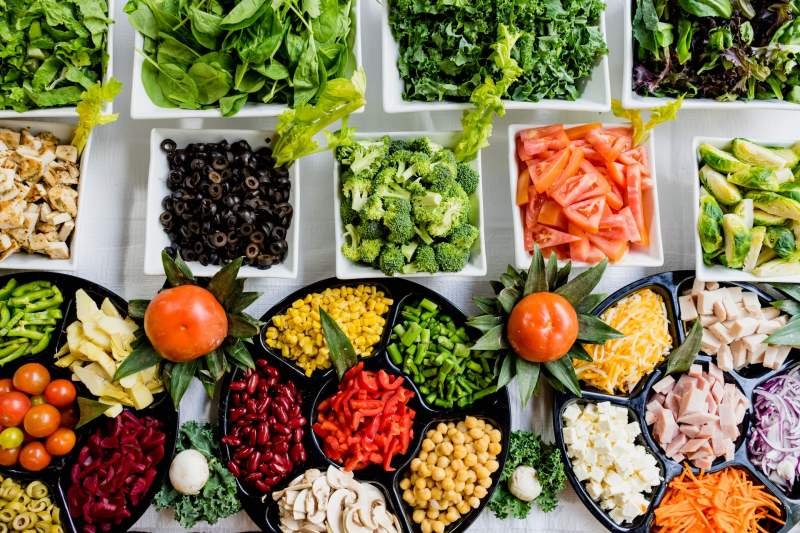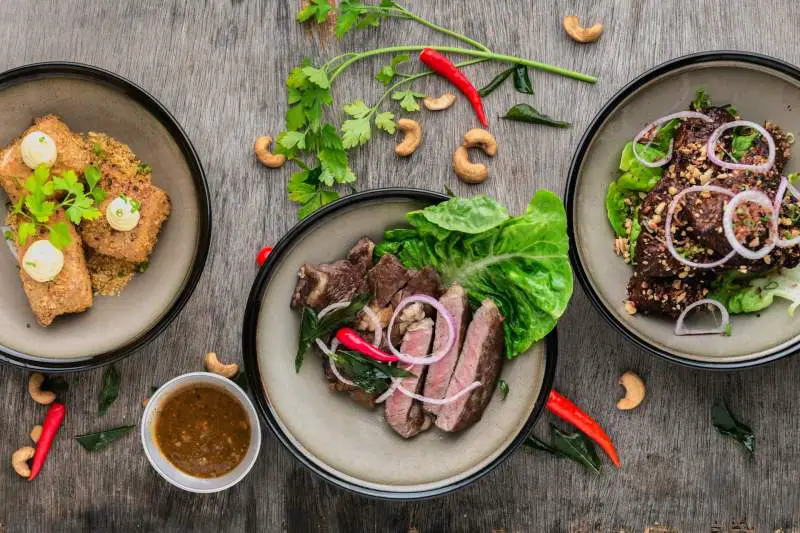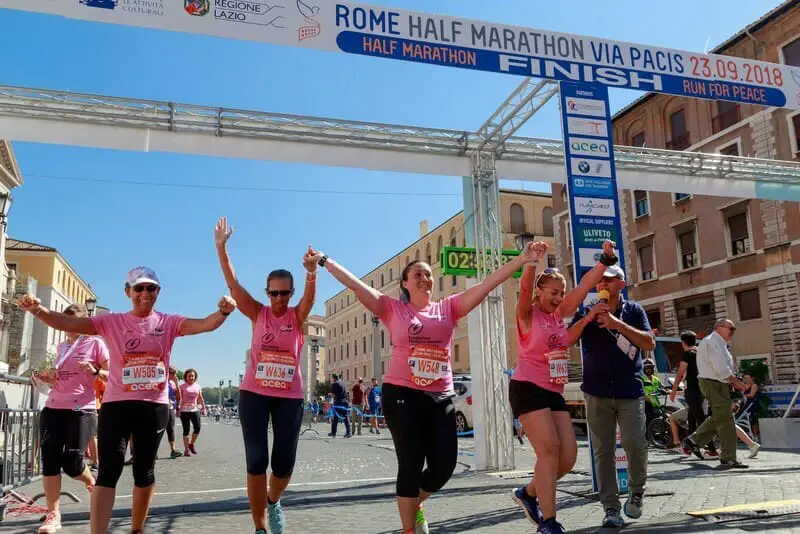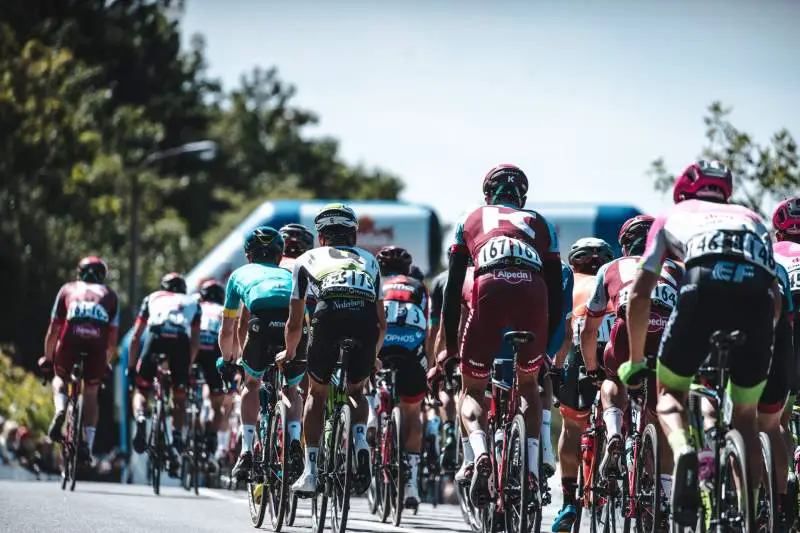Living a healthy lifestyle is important for everyone for a number of different reasons. Healthy eating and physical activity help prevent chronic illnesses like heart disease and diabetes. The number of Americans with these chronic diseases continues to increase, which raises healthcare and health insurance costs for everyone else in the country.
Similarly, when it comes to exercise or sports performance, the three major factors that are important for optimal performance are training, nutrition/hydration, and recovery/rest.
Training is all the physical hard work to prepare for an event or competition and to meet our health and fitness goals. Rest and recovery involve allowing the body to rest at least one day a week and getting adequate sleep.
Nutrition and hydration are what we are fueling our body with on a daily basis. Optimal nutrition can make or break our performance during competitions or regular exercise sessions. Here are tips and suggestions on what to eat before, during, and after exercise and sporting events.
We have all probably had competitive events, practices, or training sessions that were affected by poor eating habits. Too much sugar, too little water, or overindulging in “junk food” can affect our performance.
First, let’s do a quick overview of the essential nutrients and their main importance during training. Carbohydrates, which are found in fruits, vegetables, beans, nuts, grains, and dairy products, are the body’s preferred source of energy. Any physical activity will use carbohydrates for fuel regardless if it’s low intensity or high intensity. The body digests most carbohydrates into a substance called glucose which travels through the bloodstream as blood glucose, or blood sugar. Humans store glucose as glycogen in the body.

Fat is also used for energy. Our body burns a larger percentage of fat vs. carbohydrates during low-intensity longer duration activities. Most activities, other than an all-out maximal effort that lasts less than 30 seconds, will burn a mixture of carbohydrates and fat.
Protein can be used for energy, but this is not the preferred use for protein. Protein is more important in muscle building and repairing, which happens after exercise. Repairing and rebuilding muscle tissue is one reason that recovery and rest are very important for optimal performance.
Water is absolutely essential before, during, and after physical activity. Even a small degree of dehydration can affect performance. For activities lasting under 60 minutes, plain water is the best for hydration. For activities over 60 minutes, a sports drink can help with hydration.
Vitamins and minerals are also important for physical activity. For example, iron plays a role in transporting oxygen throughout the body. Calcium, vitamin D, magnesium, vitamin K, and phosphorus are important for strong bones. Potassium, sodium, and chloride are electrolytes, which means they play a role in fluid balance. Vitamin C plays a role in connective tissue, like tendons and ligaments. Calcium, potassium, and sodium play a role in muscle contraction and nerve transmission.
Alcohol is not an essential nutrient and should not be consumed during or after physical activity for best results. It is a diuretic, which means it promotes fluid loss and can lead to dehydration. It can also cause impairment. Alcohol can also interfere with the repairing and recovery processes that happen post-exercise.
The goal of our eating choices before exercise or sports should be focused on carbohydrates and protein. This meal should be easily digested and not cause digestive upset. Pre-workout meals should be lower in fat because these may slow the digestive process and cause a fullness feeling in the abdomen. Pre-workout meals should also be lower in fiber because this may cause issues with digestion or gastrointestinal upset.
This can be a normal meal but should be eaten 3 to 4 hours before the activity to allow time for digestion. If your exercise or activity is early in the morning, you should focus on fueling the night before and having a light snack 30-60 minutes before activity.
If you are eating 30-60 minutes before physical activity, it’s important to make sure this food includes easily digestible carbohydrates. Some options to get carbohydrates before physical activity include a banana or other fruit, toast, applesauce, or a sports drink.
Protein is not as vital before a workout because it is not used for fuel. But, you do want to consume protein after a workout. So consuming protein before exercise means you are just getting a jump start.

You should also be consuming two to three cups of water an hour before and in the time leading up to your activity. This will help ensure you are hydrated throughout the training session or event.
For most active individuals, the major focus during exercise or sports should be on hydration. If you are exercising for under an hour, you do not need to eat anything during your workout. The main focus should be on water consumption.
It’s important to consistently take two to three big gulps of water every so often during your workout. Keeping a water bottle handy or stopping at hydration stations is helpful so you don’t go too long without drinking water during this time.
If you are active for more than 60 minutes, but less than 90 minutes, having a sports drink is helpful in keeping you fueled until the end of the activity.
If you are active consecutively for more than an hour and a half, then you do need to consume some type of carbohydrates during activity. For example, if you are running a half marathon or marathon, fueling with carbohydrates at regular intervals during the race is important to fuel this longer duration event.
It’s important to figure out a fueling strategy that works for you for long-duration activities like a half marathon, marathon, or triathlon. Most people consume gels, gummies, jelly beans, or sports drinks with 25 to 50 grams of carbohydrates every 45 minutes to an hour during the activity.
Hydration is also very important during a long duration event because you will be losing fluid by sweating. Your fuel and hydration strategy should be included during your training program to ensure you have no negative effects, like gastrointestinal upset, during the event.

Your post-workout meal should include a mixture of carbohydrates and protein. The ideal ratio is 2:1 (carbohydrates:protein) for strength-focused athletes and 3:1 or 4:1 for endurance athletes. You can include fat in this meal but it is not as important for recovery after a workout.
For best results, try to consume this meal or snack within 30-60 minutes after activity. This can be your normal meal, but if it will be a while until your next meal then a snack is a good option.
One convenient option is 1% chocolate milk. The great thing about this beverage is that it has the proper ratio of carbohydrates to protein, but also contains minerals like calcium, potassium, vitamin D, and the fluid helps with hydration.
Calcium and vitamin D are important for bone health. Potassium is an electrolyte that helps with fluid balance as well as muscle and nerve contraction. It also doesn’t require any cooking and very little preparation so it can be consumed quickly after activity.
Two other snack options include Greek yogurt with fruit like berries and bananas, string cheese, an apple with peanut butter, or pretzels. Healthy post-workout meals could be an omelet with fruit and milk, chicken stir fry with veggies and brown rice, or a steak bowl with veggies and quinoa.
Healthy eating with a focus on the timing of nutrients and fluids around exercises and sports is one piece of the puzzle for optimal performance. An effective training program coupled with adequate rest and recovery completes the full picture when it comes to performing at our best.

Melissa Morris is a writer for ExpertInsuranceReviews.com who has a BS and MS in exercise science and an EdD in educational leadership. She is an ACSM certified exercise physiologist and an ISSN certified sports nutritionist. She teaches nutrition and applied kinesiology at the University of Tampa and has worked in health education, fitness, and nutrition for 15 years. You can follow Melissa on Instagram.

